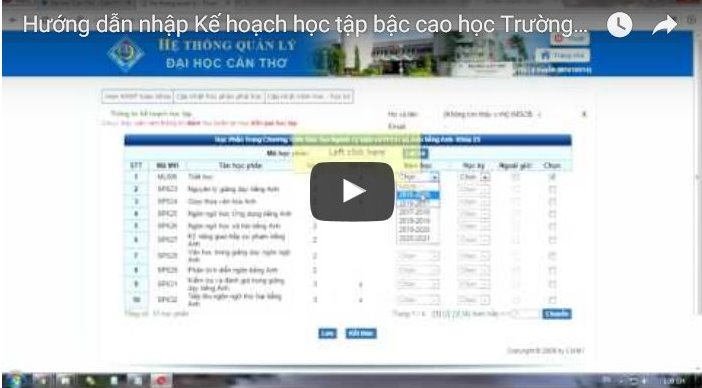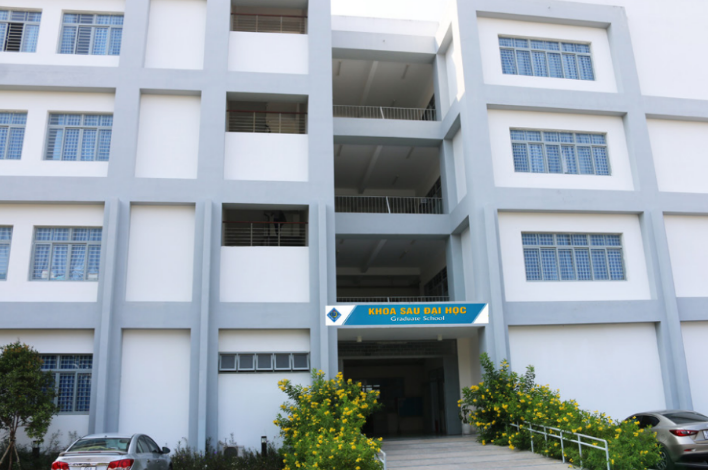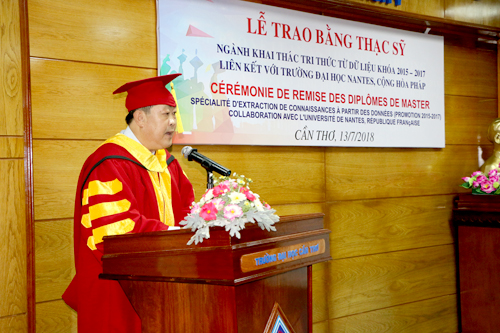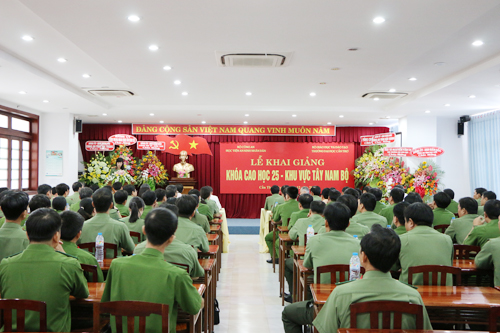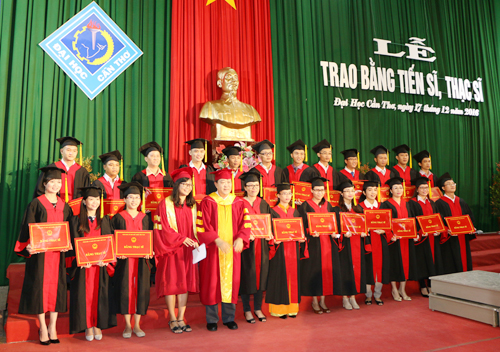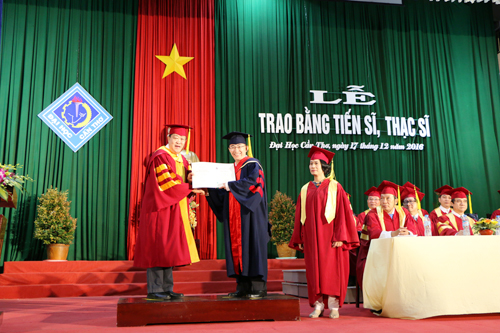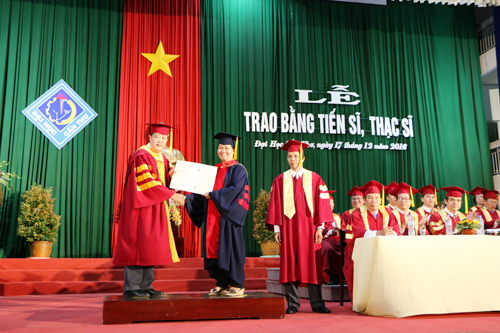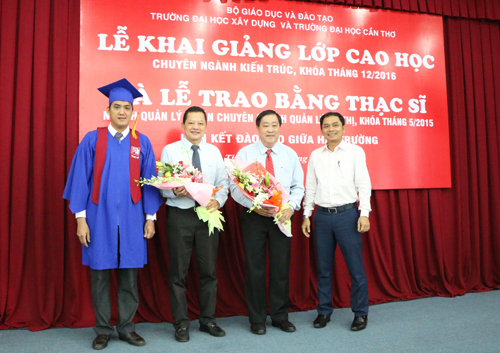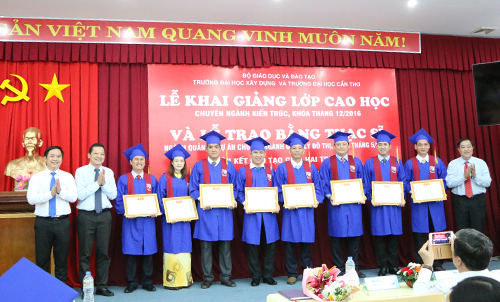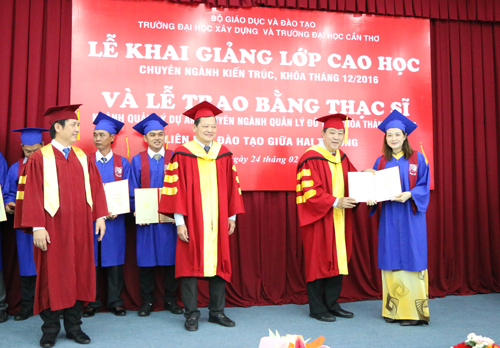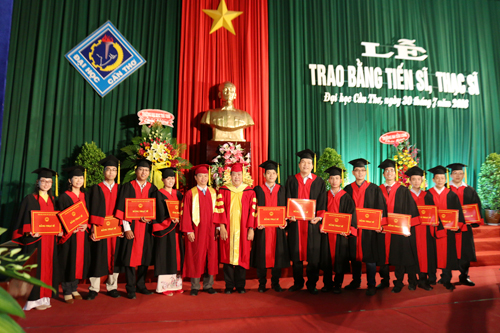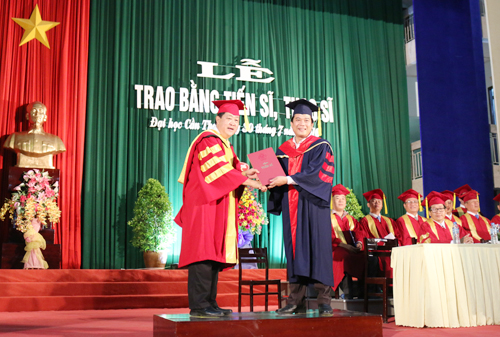
 Tên đề tài: “Phát triển hợp tác xã nông nghiệp ở tỉnh Bạc Liêu”.
Tên đề tài: “Phát triển hợp tác xã nông nghiệp ở tỉnh Bạc Liêu”.
 Tác giả: Nguyễn Văn Tuấn, Khóa: 2011
Tác giả: Nguyễn Văn Tuấn, Khóa: 2011
 Chuyên ngành: Kinh tế nông nghiệp; Mã số: 62620115. Nhóm ngành: Nông, lâm nghiệp và thuỷ sản.
Chuyên ngành: Kinh tế nông nghiệp; Mã số: 62620115. Nhóm ngành: Nông, lâm nghiệp và thuỷ sản.
 Người hướng dẫn chính: PGS.TS. Nguyễn Văn Sánh - Trường Đại học Cần Thơ.
Người hướng dẫn chính: PGS.TS. Nguyễn Văn Sánh - Trường Đại học Cần Thơ.
- Tóm tắt nội dung luận án
Hợp tác xã nông nghiệp (HTXNN) đóng vai trò quan trọng trong việc giúp nông hộ sản xuất nhỏ lẻ có cơ hội tăng thu nhập, cạnh tranh thị trường và phát triển nông nghiệp, nông thôn. Ở Bạc Liêu, sản xuất nông nghiệp là chủ yếu, chủ trương của tỉnh xem phát triển HTXNN là cơ hội phát triển kinh tế nông nghiệp và nông thôn. Số lượng HTXNN đã phát triển rất mạnh, tuy nhiên, các HTX này vẫn đang đối mặt với nhiều thách thức như: Hiệu quả hoạt động còn thấp, nông dân và chính quyền địa phương nhận thức về vai trò HTX kiểu mới còn hạn chế, nhiều chính sách hỗ trợ phát triển HTX của tỉnh đã đưa ra nhưng thiếu đánh giá và phản hồi. Bên cạnh đó, việc nghiên cứu các yếu tố tác động đến tổ chức và hoạt động sản xuất kinh doanh của HTXNN chưa được quan tâm đúng mức, vì vậy phát triển HTX ở Bạc Liêu còn nhiều giới hạn. Để giải quyết các khó khăn nêu trên, góp phần thúc đẩy phát triển HTXNN kiểu mới tại tỉnh Bạc Liêu và vùng ĐBSCL, luận án “Phát triển hợp tác xã nông nghiệp ở tỉnh Bạc Liêu” đã nghiên cứu những vấn đề như: Tổng quan về xu thế phát triển HTXNN trong và ngoài nước; nghiên cứu các yếu tố tác động đến hiệu quả hoạt động của HTXNN; thực trạng phát triển HTXNN và các giải pháp nâng cao hiệu quả hoạt động, phát triển HTXNN ở Bạc Liêu. Số liệu thứ cấp được thu thập từ các cơ quan qua thống kê và đánh giá tổ chức HTXNN tại tỉnh từ năm 2012-2016. Số liệu sơ cấp qua phương pháp chọn tổng mẫu 64 HTXNN, với 20 cán bộ quản lý theo phương chọn mẫu phi ngẫu nhiên có điều kiện và 300 hộ nông dân (150 hộ tham gia HTX và 150 hộ không tham gia HTX) theo phương pháp phân tầng ngẫu nhiên. Các phương pháp thống kê mô tả, phân tích bảng chéo, hồi quy đa biến và phân tích SWOT được ứng dụng để phân tích số liệu.
- Những kết quả mới của luận án
- Các yếu tố tác động đến hiệu quả và phát triển HTXNN gồm có: Yếu tố bên trong và yếu tố bên ngoài. Trong đó yếu tố bên trong bao gồm: (1) Yếu tố nguồn lực về tổ chức (Năng lực Ban giám đốc; nguồn lực thành viên tham gia; khả năng nối kết với thị trường, tiếp cận dịch vụ hỗ trợ nông nghiệp); (2) Yếu tố nguồn lực về vốn; (3) Yếu tố nguồn lực về đất đai; (4) Yếu tố nguồn lực về cơ sở vật chất. Nếu các yếu tố bên trong này thành công thì HTXNN có nhiều cơ hội tiếp cận và nối kết yếu tố bên ngoài về thị trường dịch vụ đầu vào và đầu ra, chính sách nhà nước về hỗ trợ phát triển tổ chức, phát triển cơ sở hạ tầng, chuyển giao khoa học công nghệ, tín dụng, nhằm phát triển HTXNN trên từng tiểu vùng sinh thái nông nghiệp, giúp hộ nông dân nhỏ tăng thu nhập, đóng góp rất lớn về phát triển HTX.
- Mô tả được thực trạng hoạt động SXKD và phát triển HTX ở địa phương. Qua đó nhận ra các thuận lợi, khó khăn, từ đó tìm ra các giải pháp liên quan đến các yếu tố tác động và hiệu quả hoạt động HTXNN.
- Về hiệu quả hoạt động HTX được thể hiện ở các cấp độ khác nhau. Cấp độ hộ là tăng thu nhập và cơ hội việc làm. Cấp độ HTX cho thấy hoạt động đa dịch vụ thì sẽ cho hiệu quả hơn hoạt động đơn dịch vụ. Về cấp độ cộng đồng thì khi tham gia tổ chức HTX, thành viên có cơ hội nhận được nhiều thông tin về chủ trương, chính sách pháp luật nhà nước, cơ hội nâng cao năng lực về tổ chức, khoa học công nghệ. Tuy vậy, HTXNN ở Bạc Liêu còn một số hạn chế như: HTX phát triển không đồng đều; tỉ lệ HTX không thành công còn cao; cơ sở hạ tầng và máy móc phục vụ dịch vụ còn hạn chế; năng lực tổ chức ở nhiều HTX còn yếu kém.
- Đề xuất nhóm các giải pháp nhằm nâng cao hiệu quả hoạt động sản xuất kinh doanh và phát triển HTXNN ở tỉnh Bạc Liêu, từ đó, góp phần khắc phục và định hướng đổi mới phát triển HTXNN đáp ứng với nhu cầu của người dân trong tiến trình công nghiệp hóa, hiện đại hóa nông nghiệp, nông thôn ở Việt Nam hiện nay.
- Các ứng dụng trong thực tiễn
- Kết quả nghiên cứu sẽ chuyển giao đến các cơ quan quản lý nhà nước tại tỉnh Bạc Liêu nhằm hỗ trợ nâng cao năng lực và phát triển HTXNN; đồng thời kết quả nghiên cứu cũng sẽ giúp cho các HTXNN ở Bạc Liêu tham khảo để chủ động nâng cao hiệu quả hoạt động.
- Luận án là nguồn tài liệu tham khảo hữu ích cho các sinh viên đại học, học viên cao học và nghiên cứu sinh chuyên ngành kinh tế trong việc nghiên cứu các vấn đề liên quan.
- Summary of the thesis
Agricultural cooperatives play an important role in helping smallholder farmers to increase their income, market competition, agricultural and rural development. In Bac Lieu, agricultural production is predominant. The province sees the development of agricultural cooperatives as an opportunity to develop agricultural and rural economy. The number of cooperatives has grown tremendously, however, these cooperatives are still facing many challenges such as: Performance is low, farmers and local authorities are aware of the limited role of cooperatives, many provincial cooperative development policies have been proposed but lack evaluation and feedback. Besides, the study of factors influencing the organization and operation of agricultural cooperatives is not paid due attention, therefore, the underdevelopment of agricultural cooperatives in Bac Lieu there are many limits. In order to solve the above difficulties, contributing to promoting the development of new-type agricultural cooperatives in Bac Lieu and the Mekong Delta, thesis “Development of agricultural cooperatives in Bac Lieu province” have studied the problems such as: Overview of the trend of cooperative development at domestic and abroad; Study the factors affecting the performance of the cooperatives; the situation of cooperative development and measures to improve the effectiveness of cooperatives development in Bac Lieu. Secondary data was collected from agencies through the statistics and evaluation of agricultural cooperatives in province from 2012 to 2016. Primary data were collected through a sample of 64 cooperatives, with 20 managers by the conditional sampling random method and 300 farmers (150 cooperatives and 150 non-cooperatives) by stratified random method. Descriptive statistical methods, cross-sectional analysis, multivariate regression, and SWOT analysis were used to analyze the data.
- The new findings of the thesis
Factors affecting the effectiveness and development of cooperatives include: Internal factors and external factors. Inner elements included: (1) Organizational resources (Capability of Directors, participant resources, ability to connect with markets, access to support services for agriculture); (2) Capital resource factor; (3) Land resources factor; (4) Resource factors of facilities. If these internal factors are successful, agricultural cooperatives have more opportunities to access and connect external factors in the input and output services market, national policy on organizational development support, infrastructure development, transfer of science and technology, credit, to develop agricultural cooperatives in each agro-ecological sub-region.
- Describe the current situation manufacturing business and development of cooperatives in the locality. Thereby, we recognize the advantages and disadvantages, thereby finding solutions related to factors affecting and efficiency of cooperative activities.
- The effectiveness of cooperative activities is reflected at different levels. Household level is the increase in income and employment opportunities. The cooperative level indicates that multi-service and non-encapsulated practices in the hamlet's geographic area will be more effective than single-service operations. On the community level, when participating in the cooperative organization, members have the opportunity to receive more information on the state policies, laws and opportunities to improve the organization, science and technology. However, agricultural cooperatives in Bac Lieu have some limitations such as: Cooperative development is uneven; The rate of cooperative unsuccessful is high; Infrastructure and machinery for service is limited; Organizational capacity in many cooperatives is weak.
- Propose a group of solutions to improve the efficiency of production and business activities and the development of agricultural cooperatives in Bac Lieu province, from that, contribute to overcome and orient the renewal of cooperative development to meet the needs of people in the process of industrialization and modernization of agriculture and rural areas in Vietnam today.
- Applications in reality
- The research results will be transferred to state management agencies in Bac Lieu province to support the capacity building and development of agricultural cooperatives; at the same time, research results will also help the cooperatives in Bac Lieu refer to actively improve the performance.
- The thesis is a useful reference resource for university students, graduate students and PhD student in economics in the study of related issues.
- Xem chi tiết nội dung luận án
- Xem thông tin đăng tải tại Website Bộ giáo dục và Đào tạo. (Nhập tên NCS vào ô tìm kiếm)

